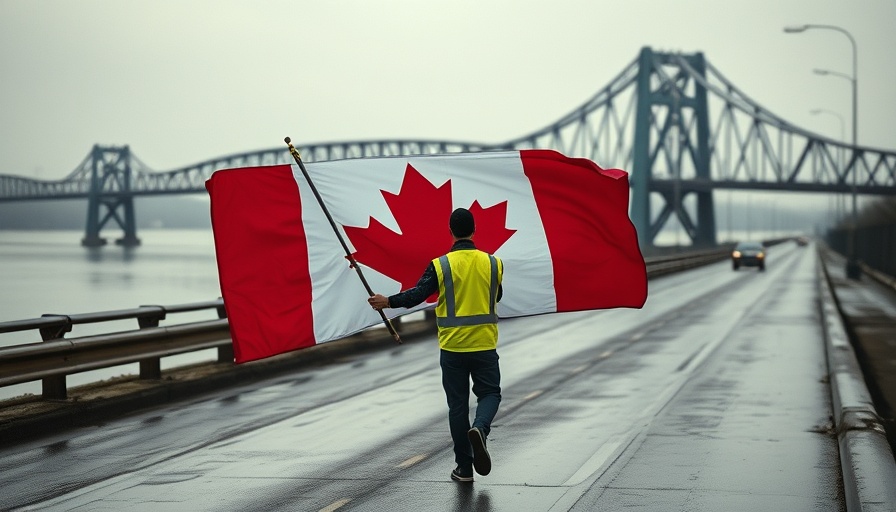
Growing Concerns: Canadians View U.S. as a Threat
The relationship between Canada and the United States is intricate, rooted in shared history and economic ties. Yet, recent polling data indicates a seismic shift in how Canadians perceive their southern neighbor. According to a survey conducted by the Pew Research Center, 59% of Canadians now view the U.S. as a significant threat, a marked increase from just 20% in 2019. This is a profound change in sentiment that reflects broader trends in international relations and trade dynamics, particularly under the tumultuous administration of former U.S. President Donald Trump.
Historical Context: A Complex Alliance
The historical relationship between Canada and the U.S. has always been complex, blending cooperation with competition. The two countries share the world’s longest international border and have deep trade ties, yet moments of tension, especially under Trump, have tested this alliance. Trump's administration frequently engaged in protectionist policies, notably slapping tariffs on Canadian goods, which contributed to growing hostilities and mistrust.
Current Events and Their Impact on Canadian Perception
The economic and security landscape has seen significant changes, with ongoing trade wars shaping public opinion. The Pew Research Center's recent survey, which polled 25 nations, found that while Canada still regards the U.S. as one of its most critical allies, evidence suggests that Canadians are increasingly wary of America's intentions. The ramifications of trade agreements and public rhetoric can’t be ignored; the U.S. was cited as a common threat not only in Canada but also among other neighboring countries, including Mexico.
Counterarguments: The U.S. as an Ally
Despite the growing perception of the U.S. as a threat, the data still shows that many Canadians acknowledge the U.S. as an essential ally. More than half—55%—consider the U.S. to be Canada’s most important partner. This duality suggests a nuanced perspective: while Canadians recognize the challenges posed by U.S. policies and rhetoric, they also value the deep-seated ties that have historically united the two nations.
Future Predictions: What Lies Ahead for Canada-U.S. Relations?
The trajectory of Canada-U.S. relations moving forward will depend on various factors, including political leadership, public sentiment, and global geopolitical dynamics. With a new administration in place, it will be essential to watch how relations evolve and whether efforts will be made to recapture the cooperative spirit that characterized earlier interactions.
Shared Public Sentiment: Understanding the Shift
The stark increase in those viewing the U.S. as a threat correlates closely with political events and shifts in leadership styles, specifically Trump's often combative approach to international relations. Canadians are feeling the effects of America’s foreign policies more personally than ever before, which has prompted a reevaluation of what an ally looks like in today's world.
Implications for All: The Importance of Awareness
For Canadians, understanding these shifting perceptions is pivotal. It can impact everything from trade negotiations to cultural ties. Awareness of these changing dynamics can help individuals and policymakers alike navigate complexities in U.S.-Canadian relations moving forward. It’s crucial for Canadians to engage with this changing landscape, reassess their historical viewpoint, and understand how their perceptions impact both domestic and international policies.
Concluding Thoughts
As the relationship between Canada and the U.S. evolves, one thing remains clear: public perception can drive international policy and relations. The dramatic rise in the perception of the U.S. as a threat invites Canadians to reflect on their role as good neighbors and the potential implications for their national identity. Staying informed and engaged in these discussions is essential for shaping a collective future that emphasizes cooperation over confrontation.
 Add Row
Add Row  Add
Add 




 Add Row
Add Row  Add
Add 

Write A Comment